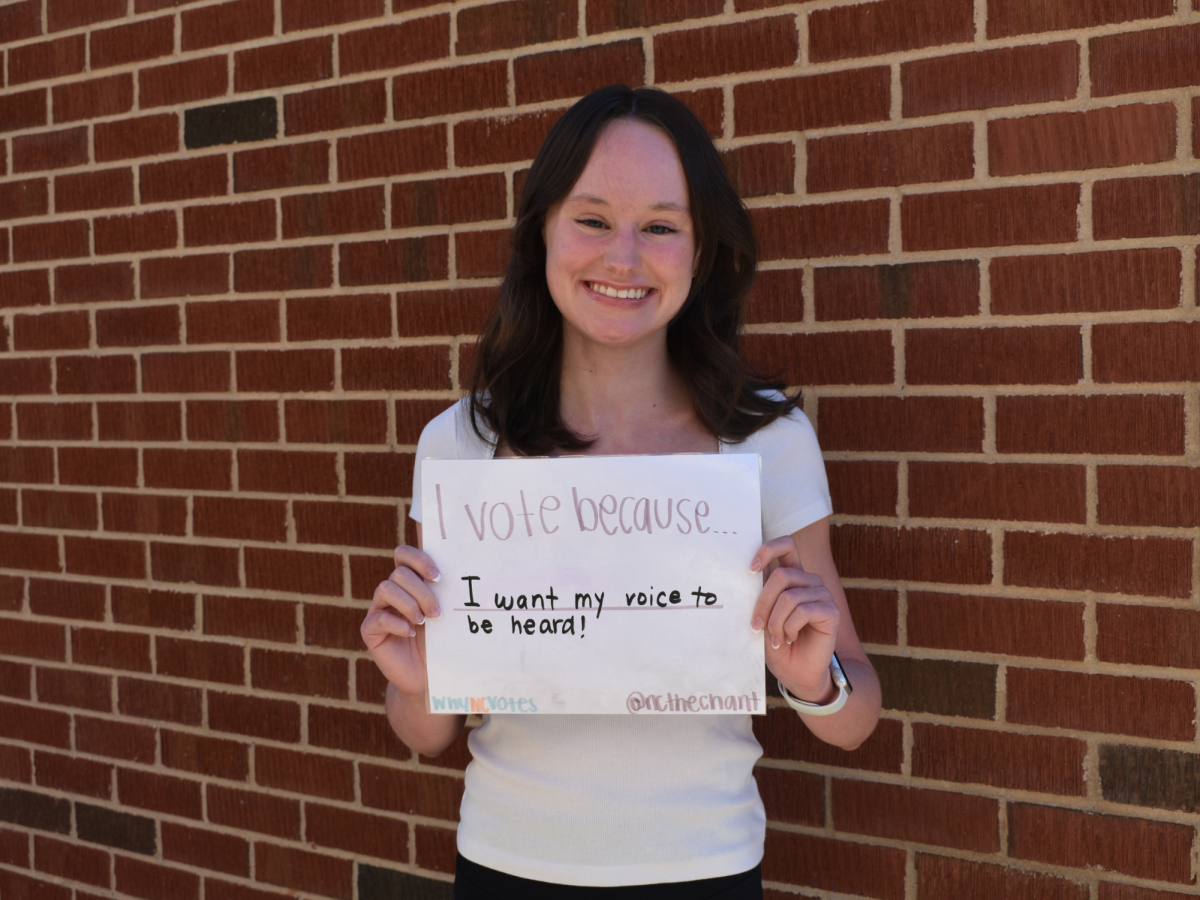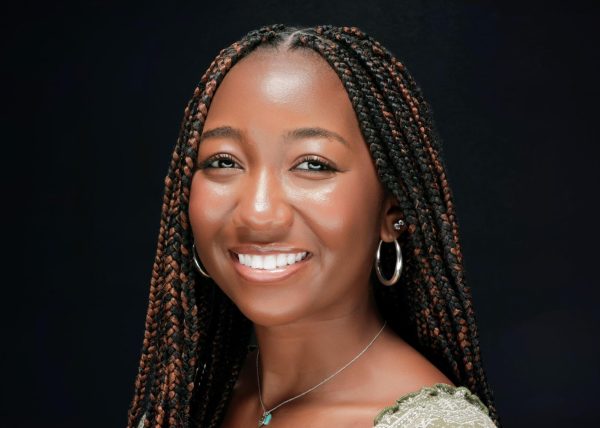Absentee ballots: a way of voting that allows an individual to cast a ballot without visiting an in-person voting facility. First implemented during the Civil War, this method of mail-in voting has served as a way for individuals to cast their ballots separate from the area they registered to vote in. While intended to aid Union soldiers during the 1864 presidential election — credits to former President Abraham Lincoln — absentee ballots in the 21st century can now serve as a way for college students to engage in civics without disrupting their education. As NC’s seniors prepare to head off to college, understanding how absentee ballots work can equip students with the tools needed to vote in future elections, such as the 2026 midterms. For this iteration of “Why NC votes,” six of NC’s alumni — Jasmina Buranich (University of Michigan Ann Arbor, Class of 2024), Mya Conner (Georgia Institute of Technology, Class of 2023), Gabi Head (University of South Alabama, Class of 2023), Claire Isbitts (University of Georgia, Class of 2024), Madeline Shell (University of Georgia, Class of 2023) and Claire Stobo (University of Toronto, Class of 2023) — share their reasoning for voting absentee, as well as express their thoughts on how they have seen the impact of democracy on their respective college campuses.
The six alumni interviewed for this edition of “Why NC Votes” answered four questions concerning their experiences with civics and motivations for absentee voting. Across all the responses submitted, each alumni voiced their passion for and support of democracy, even if they can not visit a polling location themselves.
Question One: Why are you absentee voting in this election? Why do you believe it is important for students to vote absentee?

“I’m [absentee] voting in this election because I’m away at college during voting season. I could’ve voted in my college town, however, my vote would count more back home. I think it is important for students to vote regardless of the way they do so. However, I think if their votes could count more in their hometown, they should definitely vote absentee,” Buranich said.
“I’m [absentee] voting this year because I’m studying abroad in Spain for the fall and won’t physically be in the States for the election. I believe it’s important for students to vote absentee if they are away from home because their voices matter. Even when you are away from home, you still have the ability to make change and you are not unaffected by what’s happening at home,” Conner said.
“I am voting [absentee] in this election because I attend college out of state, and will not be able to come home to vote in person. I believe it is important for students to absentee vote so their vote can count,” Head said.

“I originally planned to vote in person, but I got really busy working and doing school things so I requested one so I could stay on campus. It’s definitely important to allow students, especially when they don’t have a car like me and are reliant on other people to be able to stay at school and also vote. We have a lot of responsibilities here and it’s hard to go home sometimes, but we still have to take part in democracy,” Isbitts said.
“I want my voice to be heard, and unfortunately as a student at a school that holds class on Election Day, it’s difficult to find the time to vote in person if not early voting. I think absentee voting is so good for students because many of us simply don’t have the time to make it to the polls during the week or on election day, and absentee voting makes it as easy as writing down your vote and just mailing it in,” Shell said.
“I’m voting by absentee ballot this year due to the fact that I’m unable to get to the polls as I’m out of the country for schooling. I think it’s very important for students who cannot get home during the voting period to still cast their votes through absentee ballots,” Stobo said.
Question Two: How have you seen voting/democracy/civic engagement during your educational career?
“Although there was significant civic engagement present during my time at NC, there is undoubtedly more of a presence of that here at the University of Michigan [Ann Arbor]. Every day there are booths for registering to vote. People will just walk up to you on The Dish and ask you if you’re registered here in Ann Arbor. I will say though, it is very effective,” Buranich said.

“In high school, teachers have used ‘democratic’ methods of choosing which day for an assignment or which text to read. In college, I witnessed organized protests which I have both been a part of and a sideline supporter of. I have seen students come together for a cause and directly speak to our school’s president. These are all important because they emphasize the power of our voices and the ability to change our community when we unionize. For example, the widespread collegiate support of the Palestinian Movement has been incredible to see,” Conner said.
“During my time at NC, I did not see as much information about voting. I think this was mainly because most of us were too young to vote, so many people did not talk about it. At my university, there is always someone talking about voting. Many organizations have set up events to help students register to vote, and there have been information sessions on different ways to vote,” Head said.
“During my life as a student, I’ve seen and participated in protests. I’ve also voted in a local election in the spring,” Isbitts said.
“There are so many student organizations at the University of Georgia that encourage voting, help students register to vote, and make voting more accessible for all students. There are even many political organizations that voice their opinions during campaign season on campus, so politics are something you interact with every day at school,” Shell said.
“During my time at NC, I was pretty involved in clubs and social circles that promoted civic engagement and saw the importance of voting. This was seen through peers working the polls and wearing their voting stickers or encouraging others in their neighborhoods to vote. It’s harder to engage in civic engagement for the U.S. now that I attend school in Canada, but I have done my part in encouraging other U.S. citizens at the University of Toronto to register to vote and send in an absentee ballot of their own,” Stobo said.
Question Three: Do you believe it’s important for young people to vote? Why or why not?
“I think the most important vote is the young vote, especially in this election. The winner of this presidential election has the power to elect Supreme Court justices. These justices serve an indefinite term, meaning these justices will be making decisions for the next few decades. For young people, this means that these justices have the power to strike down laws and policies that will affect our day-to-day lives as we head into the ‘real world.’ Issues like gun safety, healthcare access, reproductive care and more, are all on the line this election. These issues affect us the most,” Buranich said.
“I believe it’s important for young people to vote because as society progresses, we are the next group of adults and the next set of people who these laws will severely impact. It is not surprising that our government consists of many older generations, of a particular demographic who may not be the best representation for such a diverse population. By voting, our young voices can be heard and shift the narrative to focus on our issues that would otherwise go unnoticed,” Conner said.
“I think it is very important for young people to vote. Young people will grow up and become the future leaders of the country. It is important they vote now so they can have the foundation needed to shape the country’s future,” Head said.

“Young people notoriously undervote. It’s important because we have the country for the longest time. It’s our future that we’re voting for, not just individuals,” Isbitts said.
“I believe it’s important for every student to vote because our generation is building the foundation of our country for years to come, and in an election where so much is on the line, it’s important that everyone does their part,” Shell said.

“I believe that it is so important for young people to vote as we are the next generation stepping into roles that are so heavily affected by politics, so it’s important to get our voices heard before we’re handed a world that’s already too damaged to reverse,” Stobo said.
Question Four: Why do you vote? Why put in the effort to absentee vote? What does voting mean to you?
“Georgia is a swing state in this election, as is Michigan… My hope is that my vote will have more power back home in Georgia. Ultimately, voting is my way of using the rights given to me in the Constitution. I believe that the people rule, and my voice counts just as much as anyone else’s. Voting is my way of demonstrating my opinion and hopefully, helping create a safer environment for not only myself, but the next generation,” Buranich said.
“I vote because it would be disrespectful to my lineage to not vote. As a black woman, my right to vote was only established 60 years ago. I have living relatives who are older than the Voting Rights Act. My great-grandmother was born in 1944, which would make her 21 by the time the act was passed, meaning at 18 she did not have the right to vote. Thankfully, that changed very soon for her, however I voted for her. I vote for all the people in my family that came before her. I vote because I have the right to and I want my voice to be heard. I vote because people who look like me deserve to be seen and heard. Despite the extra effort that it takes to absentee vote, in an election as pressing as this one, I would rather tell my children that I voted instead of sitting idly by and then complaining about the results. If you are eligible, please vote and encourage others,” Conner said.
“I vote because I have the ability to. We get to hear policies and ideas from multiple people, and then choose who we think the best candidate will be to run our country. Not every country gets to choose who its leaders are, but we do. We decide who gets the power, so we need to vote to make sure that power is going to the right people. I think a common misconception of absentee voting is the effort it takes to do it. It took me less than five minutes to fill out the application to get an absentee ballot. I have also heard many people say they do not want to vote absentee because they do not trust the mail. Once I submitted my absentee ballot, I was able to track it the entire time to make sure it went to the right location. Absentee voting is a quick and easy way to vote if you are an out-of-state college student, or if you just do not have time to go vote in person. To me, voting means having a say. By voting, I have a say in the government, and how the country is run,” Head said.
“I vote because it’s important to me that my rights and the rights and safety of my loved ones are protected, and I believe that certain candidates do this better than others. And, [after] living in the U.S. my whole life, I want to make the country better and I have faith in certain candidates’ approaches and policies over others,” Isbitts said.
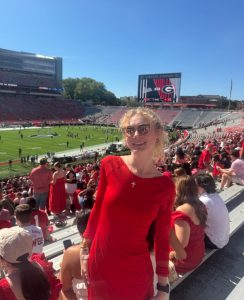
“I vote because I want to take accountability and play a part in what’s going on in my country. When it comes to protecting my rights and my freedoms, and those of my children to come, it’s extremely important to me that I do everything in my power to make my voice heard, and I think the most powerful way you can make your voice heard is to vote,” Shell said.
“Watching politics in the U.S. from Canada leads me to feel a bit helpless as I’m now an outsider looking in at a place that is still so sentimental to me. Though it’s a bit out of the way to get international voting, every vote matters. I encourage every citizen living in another country to still vote for U.S. elections as the U.S. definitely impacts the political scene in other countries, meaning it’s a duty as a US citizen but also as a global citizen,” Stobo said.
As Election Day creeps closer and closer, these six alumni stand as prepared and ready to express themselves civically before November 5. By using their time at NC, as well as the lessons learned on their respective campuses, a bright democratic future may occur not only in their futures but in the futures of upcoming NC graduates.




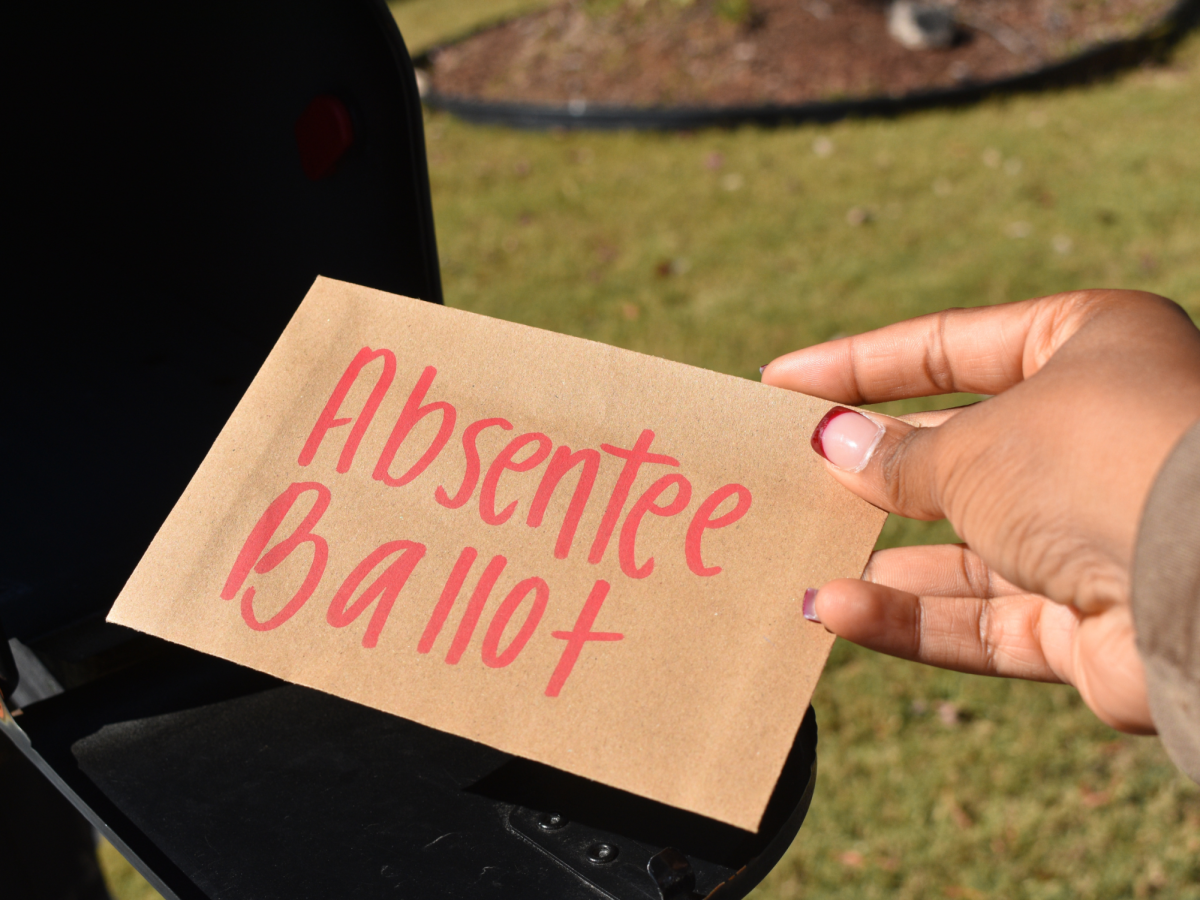

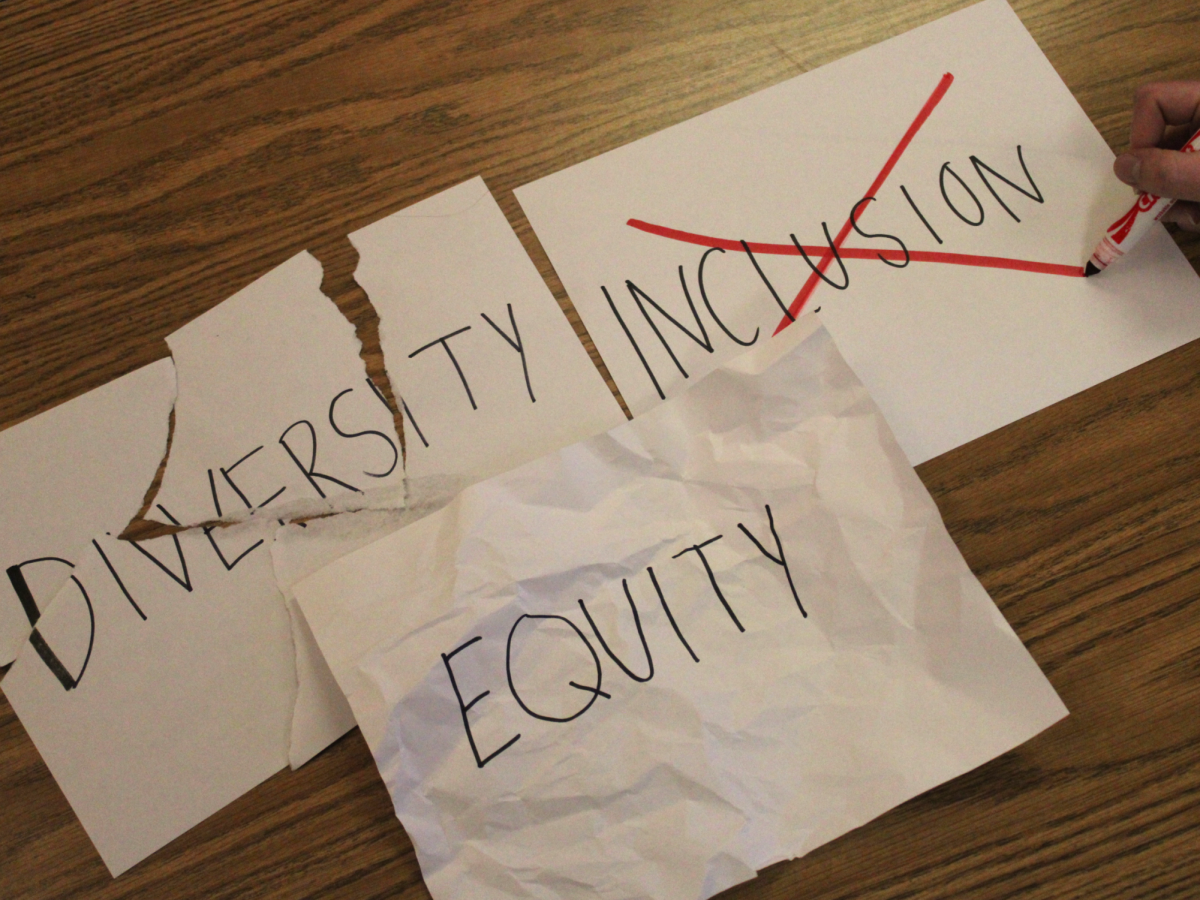


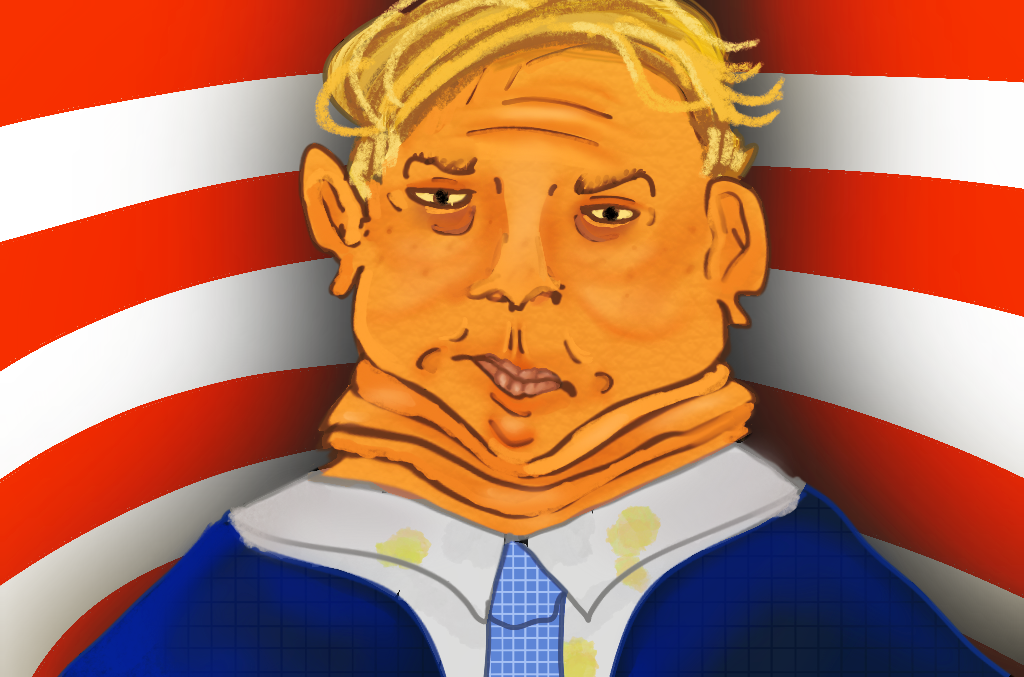

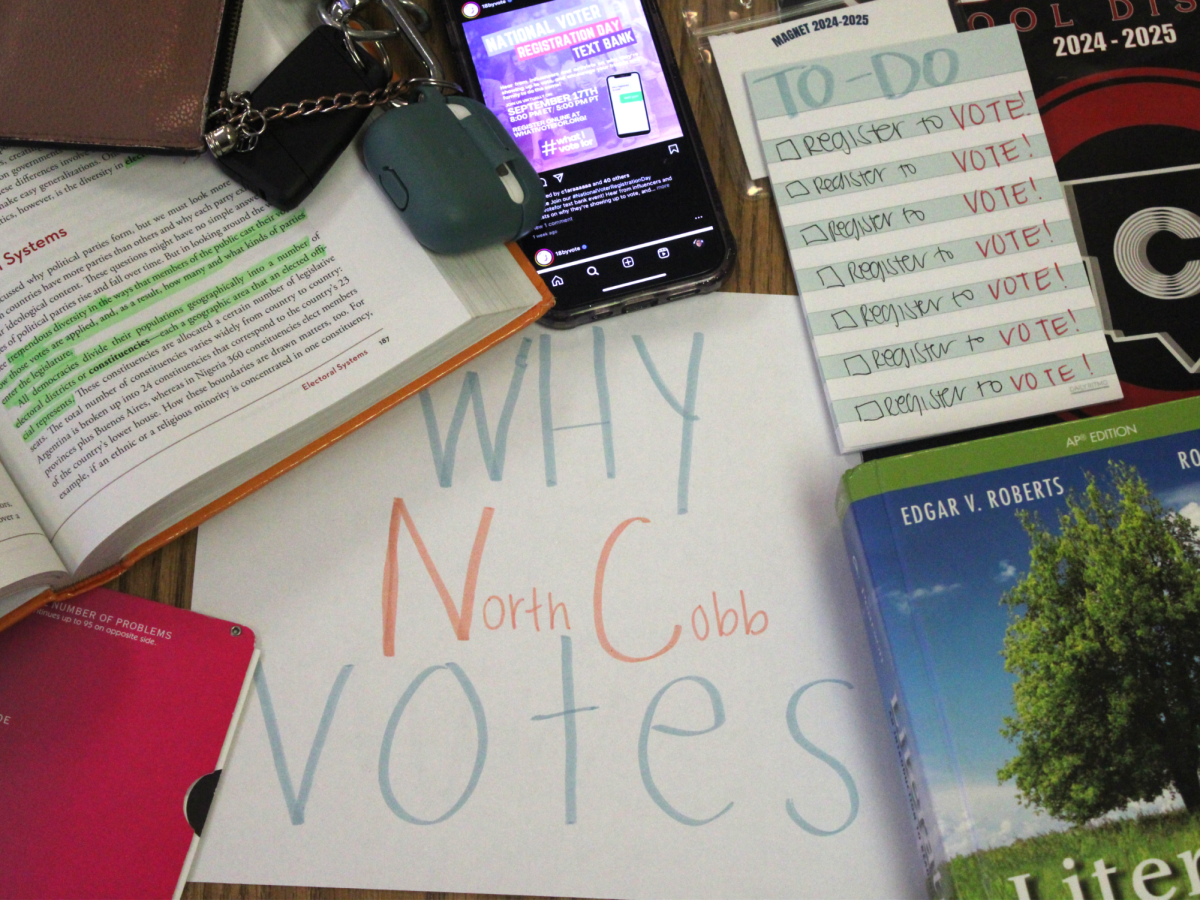
![During an election season, several Americans recall the extensive history — and conflict — with how voting has operated. The vast and often frustrating methods of voting used in decades past can allow modern citizens to appreciate the current methods in place, while also remembering the fond memories that occurred on the civic struggle bus. For Advanced Placement (AP) Macroeconomics and honors government and economics teacher Dr. Pamela Roach, her knowledge and lived experiences of different voting eras allow her to cherish her civic duty, and teach her students to do the same. Although it may not be the most efficacious, I think voting is one act of political participation. You [can] write and email your elected representative, whether it's at the local state or national level. [That] has a place in democracy because how else will those elected officials know what we, the people, want? ‘We the people’ is a powerful phrase, and no one takes the time to actually go and let their voice be heard by these individuals. So yeah, your voice matters,” Roach said.](https://nchschant.com/wp-content/uploads/2024/11/roach-photo-1-1200x900.png)
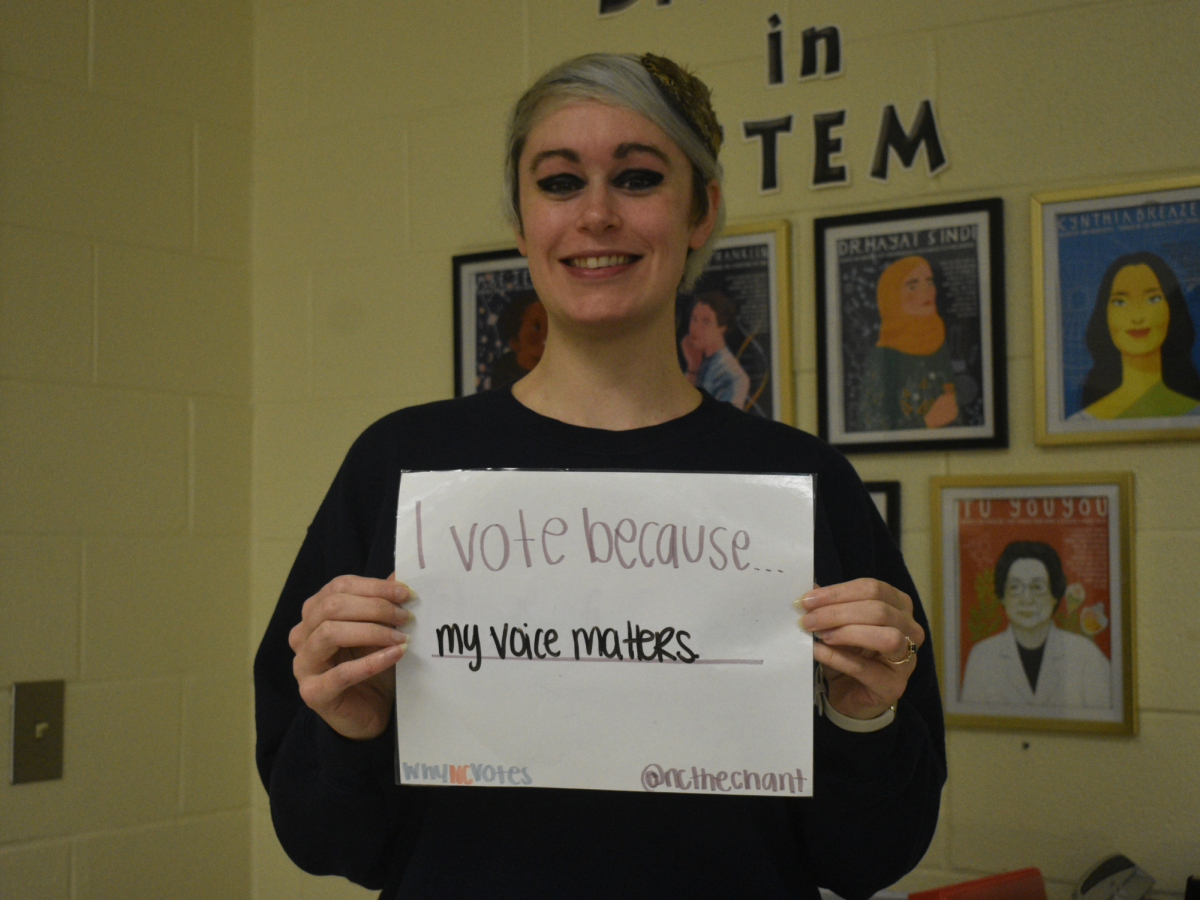

![For several government and politics educators around the U.S., an election season represents a key time to educate their students through tangible examples. In the case of Advanced Placement (AP) Comparative Government teacher Carolyn Galloway, this opportunity not only excites her but fervently aligns with her zeal for democratic processes. Through her personal and professional experiences with voting and government, Galloway encourages her students — both those who can vote and those who can not — to enter into elections informed about any topics on the ballot. “[Voting] impacts your government, especially on the local level, because not a lot of people vote on the local level. Who you vote for, how you vote, and whether or not you understand what you are voting for impact everything from who your tax commissioner is, to who your president is, to what ballot measures pass. All of those impact the way the government works for you,” Galloway said.](https://nchschant.com/wp-content/uploads/2024/10/galloway-photo-2-1200x900.png)
